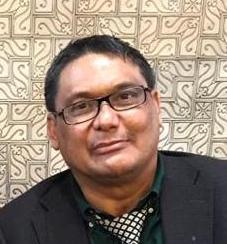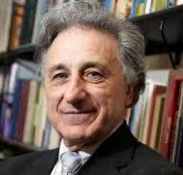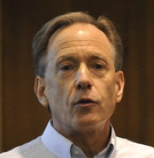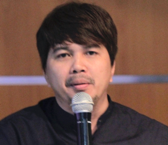
By Invitation ONLY!
Date: Sunday, 8th December 2019
Time: 2.00PM – 5.30PM
Venue:Spices Restaurant, Concorde Hotel, KL
Panelists:
Prof James Piscatori, Deputy Director, ANU Centre for Arab and Islamic Studies, Australian National University
Prof Jeffrey Kenney, Professor of Religious Studies, DePauw University and Fulbright Indonesia
Dr Azhar Ibrahim, National University of Singapore
Moderator:
Dr Maryam Zakiah
Organized by:
Islamic Renaissance Front (IRF)
There is no doubt that the spirit of reform has always been central in the rich tradition of Islamic scholarship since the classical times of Muslim civilisation. In the early modern times, influential Muslim scholars such as Jamāluddīn al-Afghāni, Muhammad Abduh and Muhammad Iqbal, have all called for reform in various aspects of the Muslim lives, not only on theological matters, but also intellectual, spiritual, social and political. Through the works of these Muslim reformers, Islam has always remained relevant as God’s moral and ethical message to all humanity, for continuous progress and development.
Gerakan Pembaharuan (Reform Movement) that characterised the era of Islamic Reformation in Malaya back then in the early 20th century, was led by Shaikh Tahir Jalaluddin, Syed Shaikh al-Hady, Shaikh Abu Bakar al-Asha’ari and others. They were literally students of Imam Muhammad Abduh (1845-1905).
They encouraged the society to utilise the Qur’an, the Prophetic traditions or Sunna, and Reason, as the best solution to its backwardness. They succeeded in elevating the intellectual horizons of the Malay-Muslim society through ijtihad (independent reasoning) and reducing taqlid (blind imitation) based on the critical understanding of the Qur’an, the Sunna and the utilisation of reason.
Unfortunately, along the way the momentum was lost. And now, among the worst of Muslim societies are turning into failed states, while among the best are trapped in rigidity, complacency, and intellectual stagnation. Central to this worrying condition is the tendency of the current generation of the scholars of Islam, or the ulama,’ of not emphasizing on reform and renewal as an important feature of the Islamic teachings. Thus, this forum serves as an important platform and opportunity to revisit and rethink again on the question of Islamic reform, mainly in Muslim societies and to commemorate the struggle of the Islamic Renaissance Front in promoting reform for the past ten years since its inception.
Programs:
PM
2.00-2.30: Registration
2.30-2.40: Opening speech by Dr Maryam Zakiah, Islamic Renaissance Front (IRF)
2.40-3.10: Book Launch of “Antologi Seminar Pemikiran Reformis – Jilid I”,
by Tan Sri Professor Dzulkifli Abdul Razak, Rector, International Islamic University of Malaysia
3.10-3.30: Speech by Dato’ Dr Ahmad Farouk Musa, Islamic Renaissance Front
3.30-3.50: Prof James Piscatori, Australian National University
3.50-4.10: Prof Jeffrey Kenney, DePauw University & Fulbright Indonesia
4.10-4.30: Dr Azhar Ibrahim, National University of Singapore
4.30-5.30: Discussion
5.30 : Tea
Speakers’ Biography
 Tan Sri Professor Dzulkifli Abdul Razak is the Rector of the International Islamic University of Malaysia. He was the 5th Vice-Chancellor/President of Universiti Sains Malaysia (USM) from 2000 to 2011; a member of the World Health Organisation (WHO) Expert Advisory Panel on Drug Policy and Management (1995-2010); and WHO Scientific Committee of Tobacco Product Regulation (2004-2006). He was the 1st Asian to receive the prestigious 2017 Gilbert Medal and the 7th internationally from Universitas 21, a group of renowned research intensive universities focused on fostering global citizenship and encouraging institutional innovation. He also received the 2017 Asia HRD Contribution to Society Award as recognition for his contribution to people’s development in the academic world. He is also a Fellow, Academy of Sciences Malaysia (FASc), the World Academy of Art and Science (FWAAS) and Malaysian Institute of Malaysia (FMIM). He is also an Honorary Lifetime member of Asian Academy of Management, and more recently Fellow of the World Academy of Islamic Management (FWAIM). He was awarded the 2017 Tokoh Akademik Negara (National Academic Laureate and a recipient of a number of Honorary Doctorates from various international universities. His latest major scholarly contributions are Fourth Industrial Revolution – The Leadership Dilemma (2018) and Voicing Concern (2018), the seventh volume of the same title comprising his weekly columns from 2015 to 2017. Another contribution Nurturing a Balanced Person – The Leadership Challenge (2015, 2017) won the Anugerah Buku Negara 2016 award and is listed as one of the 50 Best Malaysian Titles for International Rights 2017-2018, according to the National Book Council of Malaysia (MBKM).
Tan Sri Professor Dzulkifli Abdul Razak is the Rector of the International Islamic University of Malaysia. He was the 5th Vice-Chancellor/President of Universiti Sains Malaysia (USM) from 2000 to 2011; a member of the World Health Organisation (WHO) Expert Advisory Panel on Drug Policy and Management (1995-2010); and WHO Scientific Committee of Tobacco Product Regulation (2004-2006). He was the 1st Asian to receive the prestigious 2017 Gilbert Medal and the 7th internationally from Universitas 21, a group of renowned research intensive universities focused on fostering global citizenship and encouraging institutional innovation. He also received the 2017 Asia HRD Contribution to Society Award as recognition for his contribution to people’s development in the academic world. He is also a Fellow, Academy of Sciences Malaysia (FASc), the World Academy of Art and Science (FWAAS) and Malaysian Institute of Malaysia (FMIM). He is also an Honorary Lifetime member of Asian Academy of Management, and more recently Fellow of the World Academy of Islamic Management (FWAIM). He was awarded the 2017 Tokoh Akademik Negara (National Academic Laureate and a recipient of a number of Honorary Doctorates from various international universities. His latest major scholarly contributions are Fourth Industrial Revolution – The Leadership Dilemma (2018) and Voicing Concern (2018), the seventh volume of the same title comprising his weekly columns from 2015 to 2017. Another contribution Nurturing a Balanced Person – The Leadership Challenge (2015, 2017) won the Anugerah Buku Negara 2016 award and is listed as one of the 50 Best Malaysian Titles for International Rights 2017-2018, according to the National Book Council of Malaysia (MBKM).
 Dato’ Dr Ahmad Farouk Musa is a Founder and Director of the Islamic Renaissance Front, an intellectual movement and think-tank promoting reform and renewal in Islam, democracy, good governance and human rights. He is actively involved in civil society and the emerging discourse on post-Islamism. He is also involved in interfaith dialogues especially with regard to Christian-Muslim relations and intra-faith dialogues especially the Shi’i-Sunni discourse. He has presented papers at numerous international meetings including at the Symposium on Islam and Contemporary Issues in Tehran, Iran, in March 2017 and ISEAS Yusuf-Ishak Institute, Singapore, in August 2019. Professionally, he is an academic researcher at the School of Medicine, Monash University Malaysia. He is currently a Commissioner at the Commonwealth Initiative for the Freedom of Religion or Belief (CIFoRB) based in Westminster, London and a Research Fellow at Sekolah Tinggi Filsafat Islam (STFI) Sadra, Jakarta. He was a Founding Member of Muslim Professionals Forum (MPF), Director at the Centre for Combating Corruption and Cronyism (C4) and a former Deputy-Chairperson of BERSIH 2.0, a strong civil movement working for a free and fair election.
Dato’ Dr Ahmad Farouk Musa is a Founder and Director of the Islamic Renaissance Front, an intellectual movement and think-tank promoting reform and renewal in Islam, democracy, good governance and human rights. He is actively involved in civil society and the emerging discourse on post-Islamism. He is also involved in interfaith dialogues especially with regard to Christian-Muslim relations and intra-faith dialogues especially the Shi’i-Sunni discourse. He has presented papers at numerous international meetings including at the Symposium on Islam and Contemporary Issues in Tehran, Iran, in March 2017 and ISEAS Yusuf-Ishak Institute, Singapore, in August 2019. Professionally, he is an academic researcher at the School of Medicine, Monash University Malaysia. He is currently a Commissioner at the Commonwealth Initiative for the Freedom of Religion or Belief (CIFoRB) based in Westminster, London and a Research Fellow at Sekolah Tinggi Filsafat Islam (STFI) Sadra, Jakarta. He was a Founding Member of Muslim Professionals Forum (MPF), Director at the Centre for Combating Corruption and Cronyism (C4) and a former Deputy-Chairperson of BERSIH 2.0, a strong civil movement working for a free and fair election.
 Professor James Piscatori is currently Deputy Director and Professor at the ANU Centre for Arab and Islamic Studies. Prior to holding this position, he was Chair of the School of Government and International Affairs at Durham University, a Fellow of the Oxford Centre for Islamic Studies and Fellow of Wadham College, Oxford; and Professor of International Politics in the University of Aberystwyth. He has held professorial appointments in the Department of International Politics, the University of Wales, and the School of Advanced International Studies of the Johns Hopkins University. In addition, he has been a Research Fellow at the Royal Institute of International Affairs, London, and Senior Fellow at the Council on Foreign Relations, New York. He has also been Senior Fellow at two research institutions — the Royal Institute of International Affairs in London and the Council on Foreign Relations in New York. He has served on several international collaborative committees such as the Committee for the Comparative Study of Muslim Societies of the Social Science Research Council, and was co-editor of a series on Muslim Politics for Princeton University Press. Prof. Piscatori is the author of Islam in a World of Nation-States and co-author (with Dale F. Eickelman) of Muslim Politics. He is the editor of Islam in the Political Process and co-editor of Muslim Travellers: Pilgrimage, Migration, and the Religious Imagination. Islam, Islamists, and The Electoral Principle appeared in a series of papers for the International Institute for the Study of the Modern Muslim World in Leiden. He has also co-edited Monarchies and Nations: Globalization and Identity in the Arab States of the Gulf.
Professor James Piscatori is currently Deputy Director and Professor at the ANU Centre for Arab and Islamic Studies. Prior to holding this position, he was Chair of the School of Government and International Affairs at Durham University, a Fellow of the Oxford Centre for Islamic Studies and Fellow of Wadham College, Oxford; and Professor of International Politics in the University of Aberystwyth. He has held professorial appointments in the Department of International Politics, the University of Wales, and the School of Advanced International Studies of the Johns Hopkins University. In addition, he has been a Research Fellow at the Royal Institute of International Affairs, London, and Senior Fellow at the Council on Foreign Relations, New York. He has also been Senior Fellow at two research institutions — the Royal Institute of International Affairs in London and the Council on Foreign Relations in New York. He has served on several international collaborative committees such as the Committee for the Comparative Study of Muslim Societies of the Social Science Research Council, and was co-editor of a series on Muslim Politics for Princeton University Press. Prof. Piscatori is the author of Islam in a World of Nation-States and co-author (with Dale F. Eickelman) of Muslim Politics. He is the editor of Islam in the Political Process and co-editor of Muslim Travellers: Pilgrimage, Migration, and the Religious Imagination. Islam, Islamists, and The Electoral Principle appeared in a series of papers for the International Institute for the Study of the Modern Muslim World in Leiden. He has also co-edited Monarchies and Nations: Globalization and Identity in the Arab States of the Gulf.
 Professor Jeffrey Kenney is a professor of religious studies at DePauw University. He has a PhD in religious studies from the University of California, Santa Barbara. His research and publications have focused on modern Islam in Egypt, with special attention to Islamist politics and religious discourse in public life. His book Muslim Rebels: Kharijites and the Politics of Extremism in Egypt analyzed the way modern anti-extremist discourse draws on sectarian history and plays into debates about religion-state relations. He co-edited and contributed to an advanced introduction entitled Islam in the Modern World. His recent publications include an article on the religious-spiritual content of self-help books in Egypt and a chapter on Salafism. He expanded his interest in Islam to Southeast Asia, starting with a Fulbright Scholar Grant to Malaysia, 2012-2013. He was hosted at the International Islamic University Malaysia, in Kuala Lumpur, where he studied the way non-Muslim religions were taught in the Department of Usul al-Din and Comparative Religion. His 2019-2020 Fulbright Scholar grant is part of his ongoing interest in the way the teaching of religion (religious studies, comparative religion, Islamic studies) interconnects with modernization and the pluralistic social landscape in Southeast Asia. He is currently conducting an ethnographic research project entitled “Comparative Religion and Cultural Politics in Indonesia” at the Indonesian Consortium for Religious Studies (ICRS), Gadjah Mada University under the 2019 Fulbright US Scholar Program.
Professor Jeffrey Kenney is a professor of religious studies at DePauw University. He has a PhD in religious studies from the University of California, Santa Barbara. His research and publications have focused on modern Islam in Egypt, with special attention to Islamist politics and religious discourse in public life. His book Muslim Rebels: Kharijites and the Politics of Extremism in Egypt analyzed the way modern anti-extremist discourse draws on sectarian history and plays into debates about religion-state relations. He co-edited and contributed to an advanced introduction entitled Islam in the Modern World. His recent publications include an article on the religious-spiritual content of self-help books in Egypt and a chapter on Salafism. He expanded his interest in Islam to Southeast Asia, starting with a Fulbright Scholar Grant to Malaysia, 2012-2013. He was hosted at the International Islamic University Malaysia, in Kuala Lumpur, where he studied the way non-Muslim religions were taught in the Department of Usul al-Din and Comparative Religion. His 2019-2020 Fulbright Scholar grant is part of his ongoing interest in the way the teaching of religion (religious studies, comparative religion, Islamic studies) interconnects with modernization and the pluralistic social landscape in Southeast Asia. He is currently conducting an ethnographic research project entitled “Comparative Religion and Cultural Politics in Indonesia” at the Indonesian Consortium for Religious Studies (ICRS), Gadjah Mada University under the 2019 Fulbright US Scholar Program.
 Dr Azhar Ibrahim, is the Deputy Head of Department at the Department of Malay Studies, National University of Singapore (NUS). He graduated with a Doctor of Philosophy and Masters degree from the same university specializing in Malay Studies, especially in the field of classical and modern Malay literature. His focus is on sociology of literature, social theology, cultural discourse, civilization and Islamic thought, as well as interest in critical literary discourse and Malay-Indonesian intellectual development. He has also published ‘Syair Kesaksian’ entitled the theme of social criticism. Among his published books are: Historical Imagination and Cultural Responses to Colonialism and Nationalism: A Critical Malay(sian) Perspective (2017), Menyanggah Belenggu Kerancuan Fikiran Masakini (2016), Utopia Masyarakat Lambak (2015), Cendekiawan Melayu Penyuluh Emansipasi (2014), Bahasa dan Tantangan Intelektualisme (2014), Contemporary Islamic Discourse in the Malay-Indonesia World ( 2014) dan Narrating Presence: Awakening from Cultural Amnesia (2014).
Dr Azhar Ibrahim, is the Deputy Head of Department at the Department of Malay Studies, National University of Singapore (NUS). He graduated with a Doctor of Philosophy and Masters degree from the same university specializing in Malay Studies, especially in the field of classical and modern Malay literature. His focus is on sociology of literature, social theology, cultural discourse, civilization and Islamic thought, as well as interest in critical literary discourse and Malay-Indonesian intellectual development. He has also published ‘Syair Kesaksian’ entitled the theme of social criticism. Among his published books are: Historical Imagination and Cultural Responses to Colonialism and Nationalism: A Critical Malay(sian) Perspective (2017), Menyanggah Belenggu Kerancuan Fikiran Masakini (2016), Utopia Masyarakat Lambak (2015), Cendekiawan Melayu Penyuluh Emansipasi (2014), Bahasa dan Tantangan Intelektualisme (2014), Contemporary Islamic Discourse in the Malay-Indonesia World ( 2014) dan Narrating Presence: Awakening from Cultural Amnesia (2014).